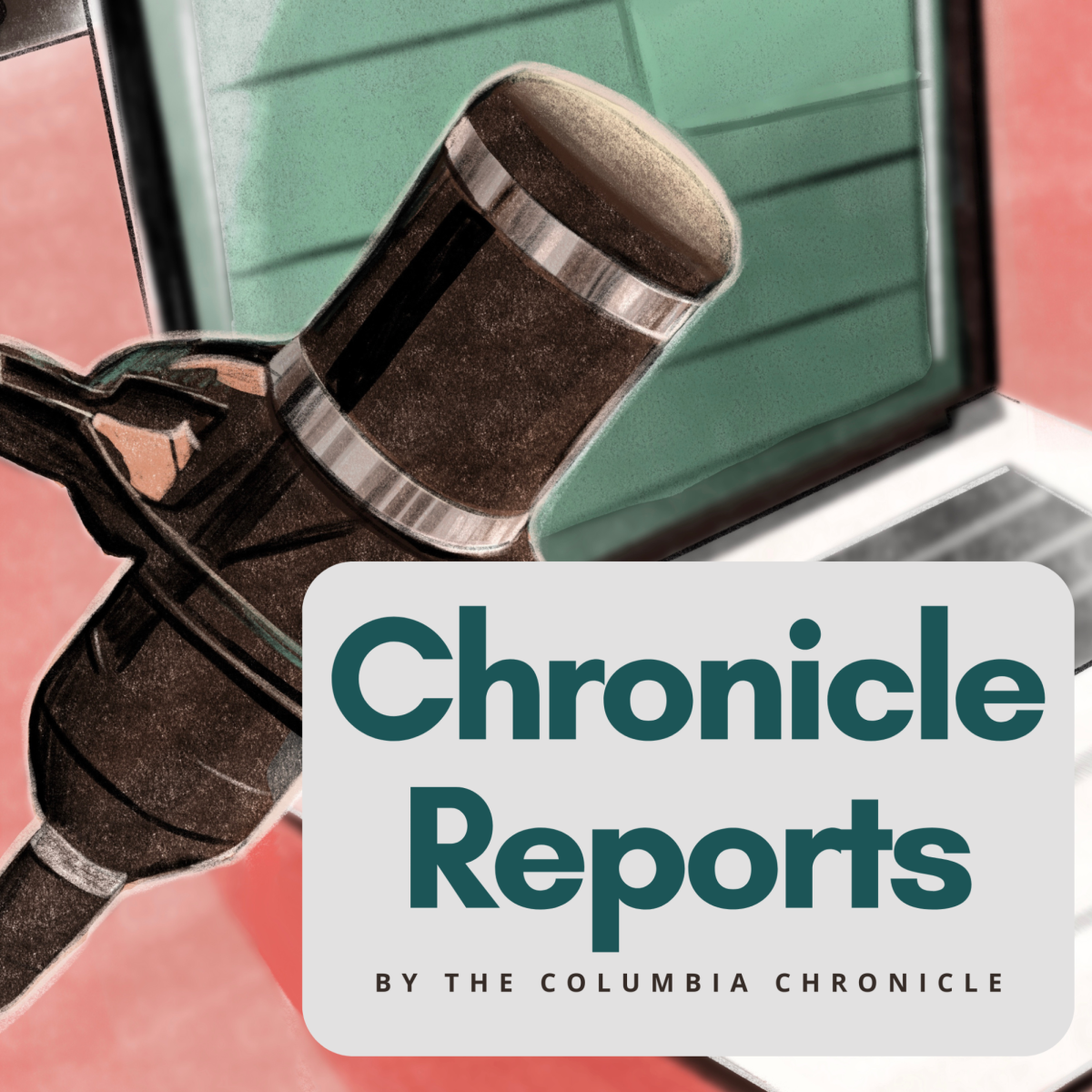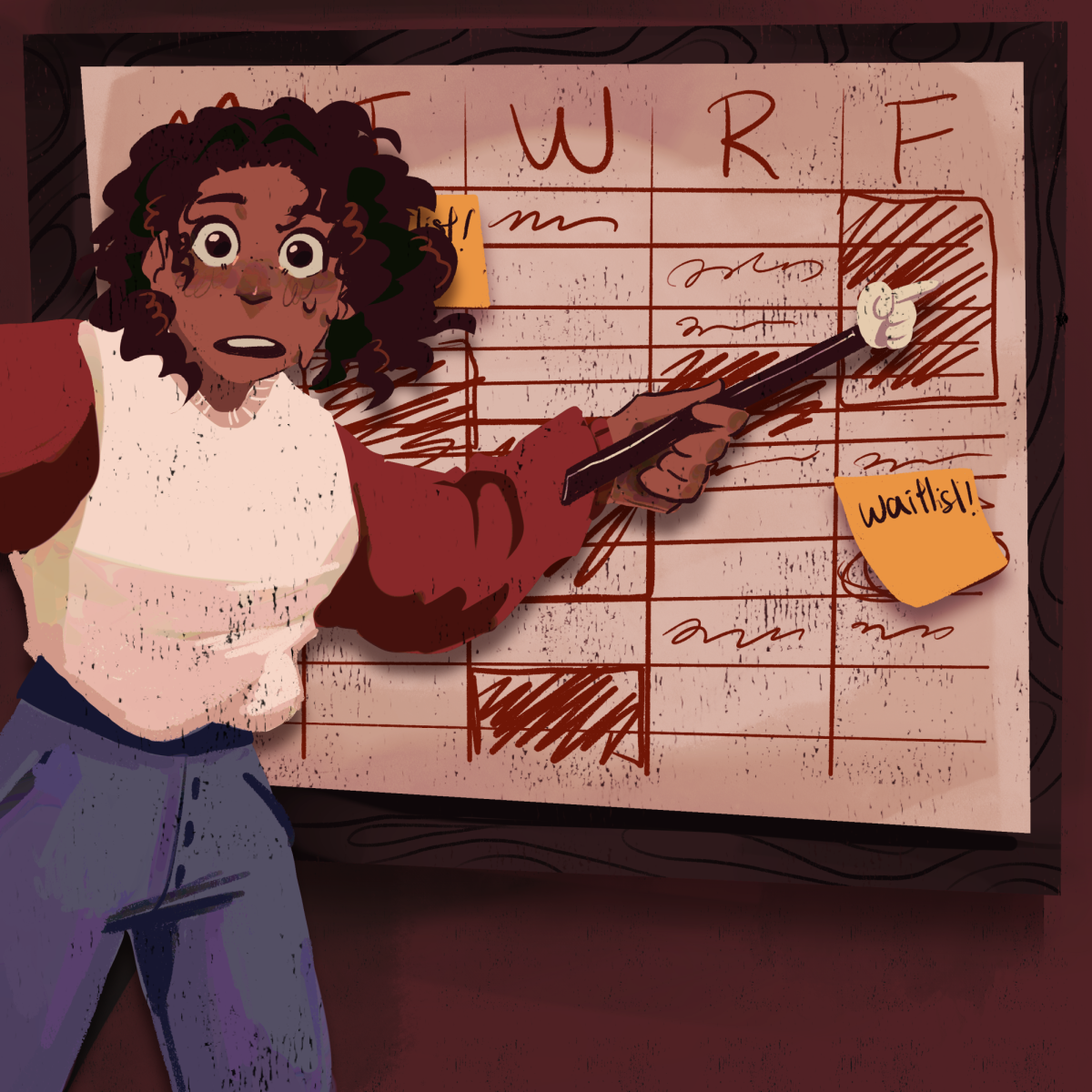On March 17, Shantay Bolton was announced as Columbia’s next president and CEO. The Chronicle sat down for an exclusive interview with the president-elect. In this podcast, the Chronicle’s copy chief Patience Hurston discusses the interview, Columbia’s future and the future of higher education as a whole.
TRANSCRIPT:
0:07: Welcome to Chronicle Reports, the podcast that takes you behind the headlines and inside the story.
0:13: I’m your host, Sydney Richardson.
0:16: On March 17th, Board of Trustees chair John M. Holmes announced Shantay Bolton as Columbia’s next president and CEO in a campus-wide email.
0:26: Bolton is the former executive vice president and chief business officer at Georgia Institute of Technology.
0:33: Starting July 1, Bolton will be the first woman of color to lead the college.
0:38: The Chronicle had an exclusive interview with Bolton on March 17th.
0:42: Here to talk about it is the Chronicle’s copy chief, Patience Hurston.
0:49: So Dr. Bolton is coming to Columbia from Georgia Tech, where she was vice president.
0:55: Now, Georgia Tech and Columbia College are very different institutions, not only in focus, you know, being STEM and technology versus arts, but also in size, as Georgia Tech has upwards of 20,000 students and Columbia’s student population is quickly falling.
1:15: So what did she say about managing the transition between these two very different colleges?
1:22: Yeah, she said a lot about how, you know, they are really different.
1:27: One is a very research-based, like, state university while Columbia is smaller and she was just saying that a lot of the things that she does to engagement with students and how she kind of approaches those roles will be similar because the fundamentals are the same of wanting to be on the ground and caring about students and really putting student engagement and the leadership of running a college first.
1:59 They are still very different though, you know, they are very math and science-based over there and we are very more artistic and creative, which she said she embraced a lot.
2:06: She is looking forward to coming here and kind of immersing herself in all of that so it’s been, it was really eye opening and really exciting.
2:17: She seemed very excited to be coming here.
2:20: Now listening back to that interview, she said she wanted to talk to student media before she gave comment to anybody else.
2:29: So as a student journalist, how did that conversation go between you?
2:35: I think it went really well.
2:36: I am honored that she wanted to come talk to the Chronicle first because, you know, we pride ourselves on having our ear to the ground and really wanting to go out and talk to students and having their stories and reporting on what matters most to them so that was really a nice thing that that was recognized by the president even before she came here.
2:58: She did also mention that a lot of the news that she knows about Columbia and about what we’ve gone through over the last year has come from the Chronicle, so that was like really an honor, but also it was really a nice time to connect with the president before she steps into that role where she’ll be managing a million different things and trying to engage with students on so many different levels for us.
3:22: For her to come to us first and really just talk about like, you know, where we are now, what she’s looking forward to, and just, it gives us a good, a bright future for how we will engage with the president going forward.
3:35: As you were saying, the news, Columbia’s been in it a lot for the last year or two.
3:42: She’s inheriting a bit of a crisis, you know, with the budgets and the resignation of our last president who was a controversial figure during the strike.
3:54: What did she have to say about approaching a college that is, I guess, in crisis mode?
4:02: Yeah, you know that was a really big point for us to talk about of like how you come in to an institution that is in a kind of a transition phase in the way that we brand ourselves, in the way that we’re outreaching the students both in Chicago and outside and she really made a point of talking about this being a healing time.
4:25: Columbia has come a long way over the past year both in changes of leadership with faculty, with students, and how we’re kind of approaching that is changing and she seemed very forward focused of what we’re gonna do next instead of how fully entrenched all of the bad news over the last year has been.
4:48: Of course that’s informing how we move forward but it did seem very optimistic and very hopeful about the future of Columbia despite these types of challenges.
4:57: So the college has undergone some big changes in recent years following the strike and the budget deficits.
5:05: Did she say what her views are going forward on the way the college has consolidated so many of its academic programs and the layoffs?
5:16: She did talk a bit about how faculty and staff will be feeling, especially with these types of changes in the pending, potential of more layoffs to come with the financial deficit.
5:30: And the provost also said this really recently with her town hall with the faculty.
5:36: That we really need to make the connections to continue to keep our college going and one of the quotes that she said that was like really has stuck with me even now is that we need to make — we need to raise friends and funds because it goes beyond just who’s donating money, it goes to what type of partnerships we’re having, who is helping build the college back up.
6:02: And she also said about faculty and staff specifically that it is challenging, but it is something we will, you know, it’s just something we’ll have to continue to go through so that our college can continue.
6:18: Now, in the days since your interview, there’s been more attention on education at a federal level.
6:28: Donald Trump signed an executive order effectively gutting the Department of Education.
6:33: Now, based on your conversation with Dr. Bolton, what do you think students should be looking out for in terms of administrative action going forward?
6:47: It is a really difficult time for education, and to be a college in the United States and students really should be looking at the commitment, first and foremost, to diversity, equity and inclusion which Columbia has already made the effort to say, ‘Hey we’re going to continue the work that we are based on,’ you know, Columbia has always had a history of being in accepting open welcoming place for everyone.
7:14: And they’re committed to that so really watching that type of thing if we’re seeing those changes of if there are centers that may be changing and how they’re funded, how if there will be problems with, you know, the funding for those things like our LGBTQ resource center or if services for students with disabilities, how those will be most impacted because you know the education department is really those focuses especially for students with disabilities.
7:49: So how we’re getting resources to the students that are most vulnerable and impacted by this, low income students, things like that.
7:57: How our funding continues to go, how are people getting their scholarships, if we’re getting the same amount of scholarships with incoming students, and on a personal level of how the environment and how we’re treating each other, how visible our president will be, how open and honest our administration will be about how these changes are affecting us and not just kind of giving a ‘Yeah, everything’s gonna be OK, you’ll get your degree.’
8:22: It’s really about the transparency going forward of where our college is and how that’s gonna affect us both while we’re here and when we go out and get our jobs.
8:32: Will we be trained for that type of new market that we may be seeing due to this type of thing?
8:38: Now, speaking of visibility of the president, Dr. Bolton will be the first female president in about 90 years at Columbia.
8:49: Columbia was founded by two women, but we haven’t had a female president since 1936.
8:57: And also at the time she takes office on July 1st, our top two leaders at the college, both the president and the provost, will be black women.
9:09: How do you think that public perception is going to go in the political climate we’re in surrounding higher education as well as DEI?
9:20: I think it’s going to, I think it sends the right message.
9:25: I think that, now, especially, it sends the perfect message about what type of school we are because to have two black women in leadership, especially as decorated as Dr. Bolton is as far as degrees and accomplishments and achievements, this is exactly the push that we need to be going toward.
9:50: Also as a black student at Columbia, and as half of our student body is BIPOC, it is extremely important that we keep that visible leadership and having the reflection of that for people to really understand their experiences as they go into the college.
10:07: It also just sets a wonderful full circle moment, 135 years after Columbia’s founding, you know, it’s been a really big thing this year about having our 135th year anniversary and really cherishing the history of the college and what better way to cherish the history than have two women, the top women in leadership, really reflecting where we started.
10:37: Bolton visited Columbia’s campus during spring break and said she plans to attend Manifest at the end of the semester.
10:44: Follow our coverage of the president-elect at Columbiachronicle.com and stay tuned for more behind the scenes looks at our journalism.
10:53: I’m Sydney Richardson.
10:55: Thanks for listening.
Copy edited by Trinity Balboa








